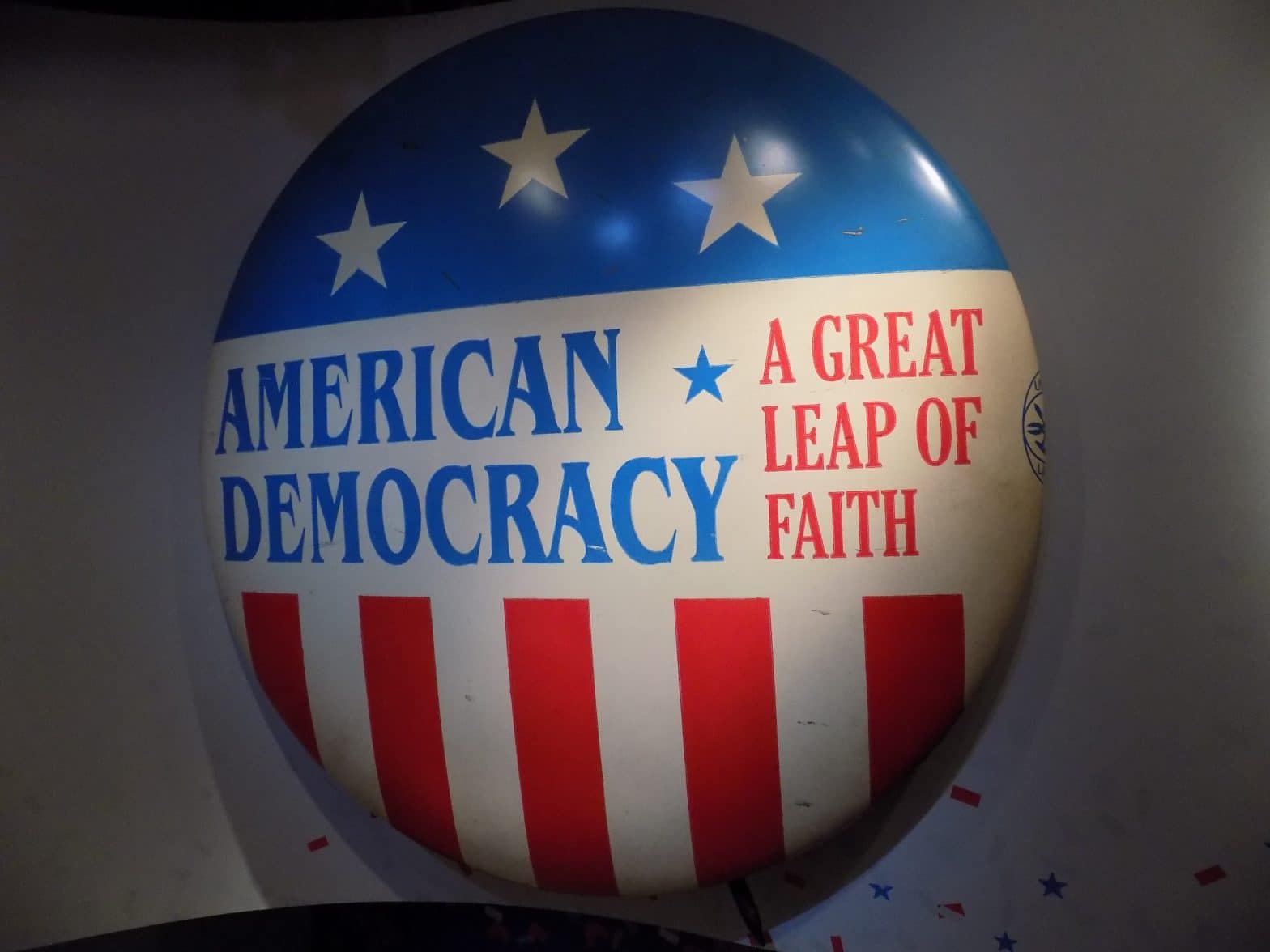There Is a Fire in the House of Democracy
COMMENTARY

Just last week, the headlines were inescapable.
They stemmed from a story in The Atlantic detailing what amounts to the Republican Party plotting a coup. Which is to say, cooking up Electoral College schemes designed to keep Donald Trump in office even if voters turn him out. Even worse, Trump himself explicitly refused to say he would respect the judgment of the electorate. For a couple days, it dominated the news, this shocking confirmation of our worst fears, the brazen theft of a nation.
Again, that was last week. This week, it feels as if all that happened in another lifetime. Now we’re mesmerized by a New York Times report that has Trump paying less in taxes than a part-time worker at a fast-food joint. And his former campaign manager being hospitalized after drunkenly trying to kill himself. And, oh yes, the first presidential debate.
In the Trump era, news moves at the speed of chaos. As a result, our concentration is atomized to the point of nothingness, our ability to pay attention fractured like china. That which should absolutely stop the presses, that which should grab us by the shoulders and shake us like rag dolls, that which should count as a four-alarm fire in the house of democracy, has all the staying power of soap bubbles and dew.
Suppose they held a coup and nobody noticed? Well, what would have seemed unthinkable four years ago is anything but in 2020.
Maybe that should tell us something. Indeed, though some of us have been arguing that America is a nation in danger of collapse, a writer named Indi Samarajiva disagrees. He says we’re already there. And he should know.
“I lived through the end of a civil war,” he writes in a new piece on Medium.com. “I moved back to Sri Lanka in my twenties, just as the ceasefire fell apart. Do you know what it was like for me? Quite normal. I went to work, I went out, I dated. This is what Americans don’t understand. They’re waiting to get personally punched in the face while ash falls from the sky. That’s not how it happens.
“This,” continues Samarajiva, “is how it happens. Precisely what you’re feeling now. The numbing litany of bad news. The ever-rising outrages. People suffering, dying and protesting all around you, while you think about dinner. If you’re trying to carry on while people around you die, your society is not collapsing. It’s already fallen down.”
One is reminded of the old proverb about the frog in the pot of water. Look at all that now passes for normal: thousands of Americans each week die from a pandemic, formerly apolitical government agencies now serve Trump’s political needs, so-called militias roam our streets, protests are ordinary, corruption is routine, lies are common, ignorance is every day and now this: Republicans blithely planning a coup.
As a result, we live a “normal” that grows stranger every day. We work from home and date on Zoom. Voting now requires an elaborate plan. You don’t know if you can trust the CDC. The American military fires upon peaceful American protesters. Face masks have become fashion statements.
There is something heroic in human adaptability, shaping oneself to a new normal when the old one is destroyed. That which does not bend, after all, breaks.
But there is also something to be said for the refusal to adapt when the cause is righteous. And this one is. Trump and his henchmen claim nothing less than the power to reject the will of the people. To accept that is to accept not just the theft of the nation, but the death of the nation — the irrevocability of our collapse.
There is a fire in the house of democracy. Let no one adapt to that.
—
© 2020 MIAMI HERALD























